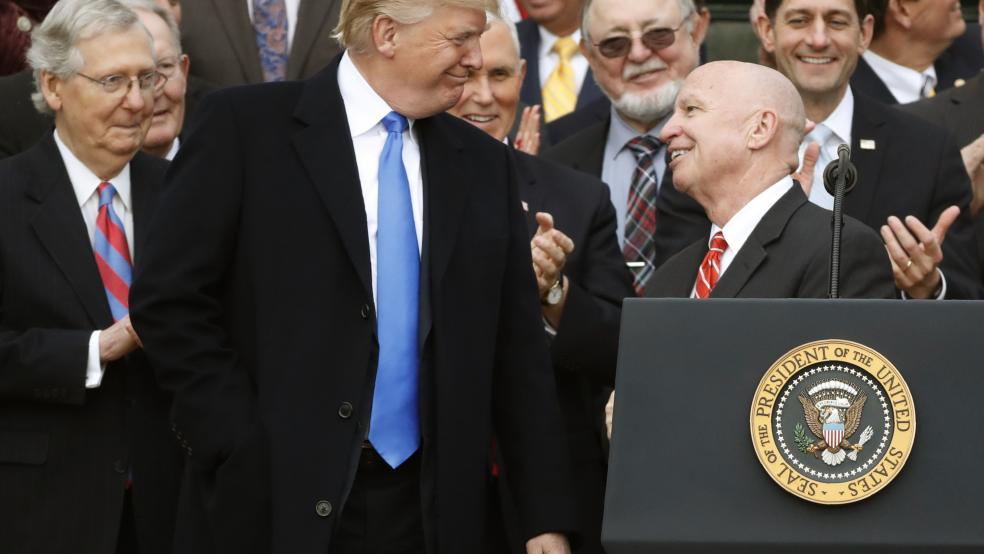As the Republican tax bill approaches its one-year anniversary, numerous scholars and critics are taking a look at its performance so far. Here are some highlights from recent reviews:
Fiscal policy added growth: Jason Furman, who served as President Obama's chairman of the Council of Economic Advisers and is now a professor at the Harvard, says in The Wall Street Journal that the tax cuts, along with increased government spending, have “clearly added to growth and jobs in 2018.” But as many critics have argued, Furman says the effects are likely to be short-lived and come at the cost of higher deficits.
The law falls short: William Gale of the Urban-Brookings Tax Policy Center says that the tax legislation falls short in three important ways:
- Economic growth: Most economists expect the boost to GDP growth from the tax overhaul to be modest at best, with little long-term benefit.
- Deficits and debt: The tax bill is projected to increase deficits by $1.9 trillion over the next decade.
- Distribution: The wealthy received the greatest benefits from the tax overhaul, and “in the most likely scenarios, most households will end up worse off” than if the bill never passed, Gale writes.
The “rich are winning:” Ben Steverman, Dave Merrill and Jeremy C.F. Lin reviewed the tax bill Tuesday in a piece titled, “A Year After the Middle Class Tax Cut, the Rich Are Winning.” The authors look back at the arguments that were used to sell the bill last year and find that most have failed to pan out. Among the promises that haven’t been kept: the wealthy won’t benefit (they have), the middle class will be the biggest beneficiaries (they’re not), and families will get pay raises of $4,000 to $9,000 (highly unlikely). And one selling point that continues to be flogged – that the tax cuts will pay for themselves – continues to be untrue, the authors point out.
Meaningful reform with uncertain long-term effects: Nicole Kaeding of the Tax Foundation says that the bill clearly reduced taxes for business and for the majority of Americans, and made some progress toward rationalizing the tax code. But she adds that the long-term effects of the tax bill are unknown, and that it will be difficult to tie any specific economic outcome to the provisions in the bill:
“[A] year after the Tax Cuts and Jobs Act, we know that 80 percent of individuals will pay lower taxes this year than last year; we know that businesses now have a lower cost of capital; and we know taxes are simpler in many ways. We know these things should increase investment and grow the economy. But we also know we can’t say with certainty whether any economic data point is solely due to the Tax Cuts and Jobs Act.”




